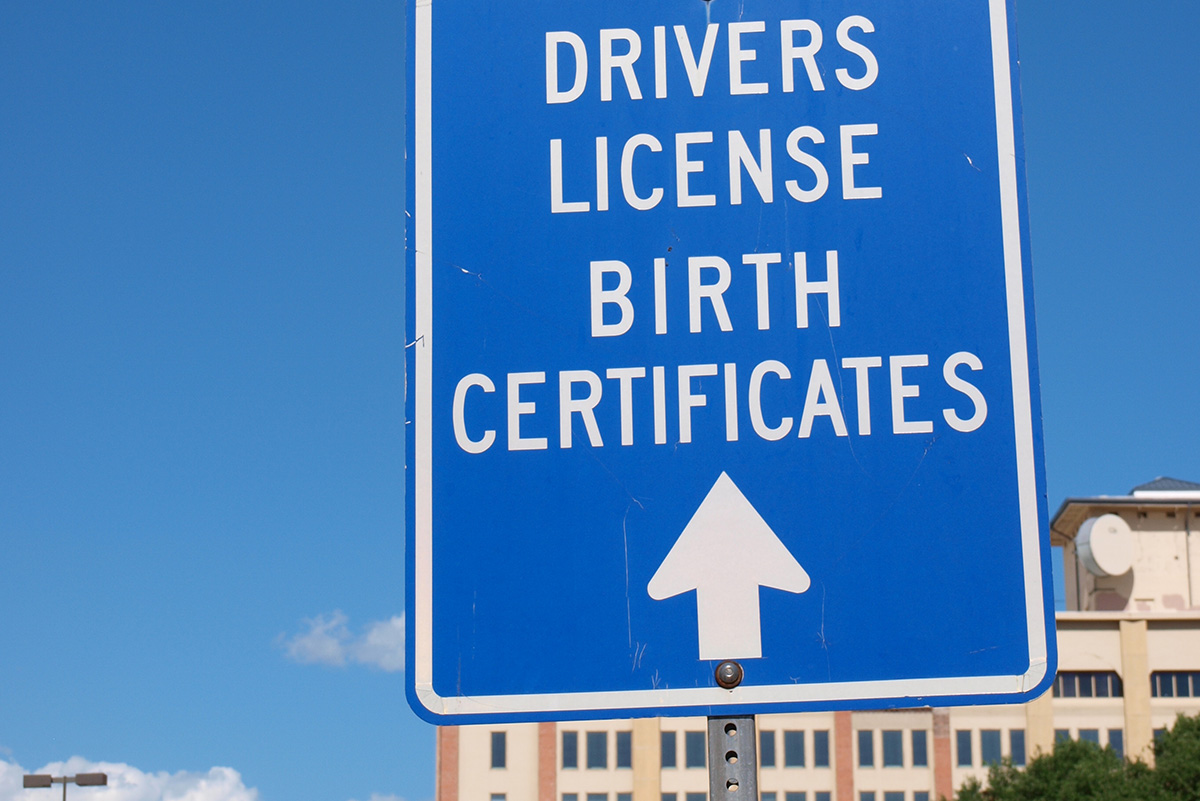Opinions
Don’t forget about Latin America in LGBT equality fight
Overlooked region is at a delicate tipping point


Manuel Antonio National Park in Costa Rica.(Washington Blade photo by Michael K. Lavers)
LGBT advocates do not speak about Latin America very often. The region is home to 625 million people and yet, it is commonly disregarded in international conferences and reports on sexual orientation and gender identity. I think it has to do with the fact that, to many, Latin America seems to be doing “well enough.”
To be fair “well enough” seems accurate to some extent. When compared to other regions of the world (primarily Africa and Southeast Asia), most countries in Latin America seem to be doing just fine in terms of liberties for LGBT people. Same-sex activity is legal in practically all the countries of the region (East-Caribbean islands aside). Same-sex marriage is recognized in Mexico, Uruguay, Argentina, Colombia and Brazil. Some countries, like Argentina, have some of the most advanced legal gender recognition norms in the world. And every summer, tens of thousands fill the streets of Rio, Santiago, Montevideo, Mexico City, and many others, with joyful marches of Pride.
Behind this salubrious portrait, however, lies a lackluster reality.
The weak rule of law that persists in some countries renders their ultra-progressive legislation practically useless. In Brazil, a person is killed because of his or her sexual orientation every 25 hours. Mexico had over one thousand homophobic murders in only two decades. And the region as a whole has four out of the five countries with the highest trans and gender-diverse murder rates in the world.
In practically all 33 countries, homophobia and transphobia continue to be widespread. In some cases, such as Barbados, Jamaica, Dominica, Grenada and several others, it is encouraged de facto by the state. In the rest, it is allowed, and often perpetrated by police officers, judges, politicians and civil servants.
LGBT activists in the region, however, are often left to put up the fight alone. With limited resources, multinational foundations and nonprofits often gear their international LGBT work toward Africa and Southeast Asia. The language barrier also limits the capabilities of small LGBT organizations in the United States and Europe that often do not have Spanish or Portuguese speaking staff.
Regional organizations also lack the capability to support the work of LGBT activists. At the Inter-American Commission of Human Rights, for example, the LGBT rapporteurship has one staff member, or sometimes two, if they are lucky to get a fellow or an intern that year. Yet, they have 35 countries to cover (U.S. and Canada included) each of them with a drastically different reality.
In the meantime, conservative organizations have mustered unprecedented resources and are orchestrating a powerful and coordinated backlash across the region.
Earlier this month in Costa Rica, a campaign based solely on hate speech boosted evangelical candidate Fabricio Alvarado to the top of the first round, in the country’s presidential elections. In the past three years alone, anti-gay groups have also managed to stop a presidential reform to recognize marriage equality nationwide in Mexico; they derailed a proposed LGBT-inclusive curriculum in Peru; and most recently, they have used deceitful campaigns in Ecuador, Chile and Uruguay to launch a defense of the traditional family from the so-called “gender ideology.” LGBT rights were also under tough scrutiny in Brazil, last year, when a judge rolled back on regulations to ban “conversion therapy,” and in Chile, where the same-sex marriage bill remained stagnant in Congress.
Latin America is at a delicate tipping point. The significant progress that was achieved over the last decade could easily be lost if the region falls into complacency. LGBT advocates are working hard to impede setbacks, but they cannot do it alone. They have the courage, the will and the inspiration; but they lack the advocacy skills, the financial resources and the brand recognition that only international organizations can build and sustain.
The timing is right. In early January, the Inter-American Court of Human Rights published a landmark advisory opinion that signals the possibility to acknowledge marriage equality and gender legal recognition under the American Convention of Human Rights.
If the international LGBT rights movement supports the region and builds robust transnational networks to share information, resources and strategies, not only will the continent be able to deter possible setbacks; it can emerge as an example that may have a domino effect elsewhere in the hemisphere, and around the world.
We have to start caring about Latin America. We have to stop thinking that “well enough” is good enough for LGBT people in the region. And we have to do so now, before it is too late.
Daniel Berezowsky is an LGBT advocate from Mexico City. He is an HBO Point Foundation Scholar pursuing a master’s in international affairs at Columbia University. During his studies, he has interned at the Inter-American Commission of Human Rights and at the LGBT Rights Division of Human Rights Watch.
Opinions
A dangerous precedent on trans rights in Texas
State compiling list of those who have updated gender on driver’s licenses

Recent reporting from Texas Standard revealed what should alarm every American who values privacy, civil rights, and constitutional restraint: the state of Texas is compiling a list of transgender residents who have attempted to update the gender marker on their driver’s licenses.
Under a policy quietly implemented after August 2024, the Texas Department of Public Safety stopped accepting court orders or amended birth certificates as valid documentation for gender marker changes. Instead, DPS employees were instructed to forward the names and identifying information of applicants seeking such updates to a dedicated internal email channel labeled “Sex Change Court Order.” Those records, which include sensitive personal information, are now being collected internally by the state.
Texas officials have not offered a clear explanation for why this information is being gathered, how long it will be retained, or what it will ultimately be used for. That lack of transparency is deeply troubling on its own. But in the broader context of Texas’s recent legislative trajectory on transgender rights, the implications are far more serious. This is not merely a bureaucratic shift. It is the creation of a targeted registry of transgender people.
The discriminatory nature of this practice is difficult to ignore. Governments are generally prohibited from singling out individuals based on protected characteristics for special monitoring or record-keeping. Since the Supreme Court’s decision in Bostock v. Clayton County, discrimination against transgender people has been understood as a form of sex discrimination under federal law. Compiling a list of people solely because they sought to align their identification documents with their gender identity runs directly counter to that principle.
Even states with restrictive policies around gender marker changes have historically focused on procedural barriers rather than surveillance. Texas has crossed a new threshold by moving from denial to documentation. The state is no longer just refusing recognition; it is actively cataloging those who seek it.
This practice also represents a profound violation of privacy. Driver’s license records contain some of the most sensitive personal data the government holds. Associating that data with a person’s transgender status without consent or statutory justification creates obvious risks, particularly in a political environment where transgender people are already subject to heightened hostility.
The chilling effect is unavoidable. Trans Texans will now have to weigh whether engaging with basic state services could land them on a government list. That fear will discourage people from updating identification, interacting with public agencies, or asserting their legal rights at all. When a government’s actions deter a specific population from participating in civic life, the harm extends well beyond administrative inconvenience.
What makes this development especially dangerous is how neatly it fits into a broader pattern. Texas lawmakers have spent years advancing legislation that narrows the legal definition of sex, restricts access to gender-affirming care, and limits the recognition of transgender people across public institutions. The creation of this list does not stand apart from those efforts; it complements them.
Once such a database exists, it becomes a tool. Data collected today for “administrative review” can be used tomorrow to justify new exclusions, enhanced scrutiny, or punitive enforcement. History shows that registries built around identity rarely remain benign. They become mechanisms of control.
Other states are watching. Texas has increasingly functioned as a testing ground for anti-trans policy, with lawmakers elsewhere ready to replicate measures that survive legal or political backlash. If compiling a list of transgender residents becomes normalized in Texas, it will not remain isolated. Red states searching for new ways to restrict trans lives will take notice.
The constitutional issues raised by this practice are significant. The Equal Protection Clause forbids states from treating similarly situated individuals differently without sufficient justification. Singling out transgender people for special tracking invites heightened scrutiny. There are also serious Fourth Amendment concerns when the government collects and retains sensitive personal information without a clear, lawful purpose.
At stake is not just the safety of transgender Texans, but the integrity of government itself. If states are permitted to quietly assemble lists of disfavored populations, the precedent does not stop with gender identity. It becomes easier to rationalize similar measures against other groups, under different political conditions.
This moment demands scrutiny and resistance. Texas must be compelled to explain why this data is being collected, how it will be protected, and whether it will be shared across agencies. Civil rights organizations and federal authorities should treat this practice as a serious warning sign, not a minor administrative quirk.
The United States has made meaningful progress toward recognizing the rights and dignity of transgender people, but that progress is fragile. It can be reversed not only through sweeping legislation, but through quiet bureaucratic maneuvers that evade public attention.
A list of transgender citizens is not a neutral administrative artifact. It is a signal. It tells a vulnerable population that their government is watching them differently, recording them differently, and preparing to treat them differently. That should concern everyone, regardless of where they live.
If we allow this to stand, Texas will not be the last state to do it.
Isaac Amend is a writer based in the D.C. area. He is a transgender man and was featured in National Geographic’s ‘Gender Revolution’ documentary. He serves on the board of the LGBT Democrats of Virginia. Contact him on Instagram at @isaacamend

One year gone, another just beginning. The best of all worlds would be no regrets about how you lived your life in 2025, and a positive outlook for 2026. I wish that for all of you, along with good health and happiness.
For me, 2025 was a good year. No new health issues as long as I don’t consider my recent root canal. Friends kidded if that was my worst, life is OK. But then they didn’t sit in the dentist chair for three hours. As you are aware, if reading this in the Blade, I write about politics. The felon in the White House ensures there is always something to write about. Unfortunately, it’s 99% bad. He recently said he will interfere in Europe, and support far-right parties. Not surprising for him, and his fascist leaning administration. Again, as you know, I usually refer to him as ‘The felon,’ my most polite name for him. He has a slew of scary incompetents around him, but truly frightening are the fascists like Russell Vought at OMB who wrote Project 2025, and his personal Goebbels, Stephen Miller. They are proposing policies that are destroying lives. While many don’t impact me, they create a certain amount of guilt in how I live my life. I am a white, privileged, cisgender, older, male and can escape the immediate repercussions of some of the worst things happening in the world today. Nearly all perpetrated, or supported, by the evil SOB in the White House. There, another name for him.
As long as my Social Security keeps coming, and Medicare still pays 80% of my doctor bills, I should be OK. In 2025, I continued to join friends every morning for coffee. In D.C. at Java House; in Rehoboth Beach, it’s The Coffee Mill, owned by my good friends Mel Damascena and Bob Cartwright.
My regular column allows me to vent and comment on the world. My second column is the Blade’s Comings & Goings column. It lets me share the successes of so many in the LGBTQ community. We have a truly amazing community, of which I am so proud to be a part. In 2025, I also began my second book, this one on politics, but don’t hold your breath for a publication date. I am also a theater reviewer for the Georgetown Dish. I get to see as many plays as I like, and share thoughts about them. Mind you, I call myself a reviewer, not a critic. I always try to find something nice to say about every production, even if I don’t recommend others see it. Maybe a good actor, great scenic designer, always something good even in a bad production.
I am fortunate to continue to travel. Now it’s on cruise ships. Great to unpack once, and know where the bathroom is. This past year I went on two cruises, and the Blade was kind enough to publish my blogs. One, a bucket list cruise, something I wanted to do for over 40 years, to the Norwegian Fjords, and the Arctic. Twelve days on Celebrity APEX out of Southampton. It was amazing, and met all my expectations. The second was my recent transatlantic cruise, something I do annually, with a large group of friends from around the country, and world. It was 13 nights from Rome to Ft. Lauderdale. I’ve already booked next October; 16 nights on Celebrity XCEL, Barcelona to Miami. I even have two cruises booked in 2027, one a transatlantic, the other a river cruise on the Douro, in Portugal. Feel free to join me if you like cruising, at least the kind done on the water.
All-in-all, 2025 was a good year. I look forward to the same in 2026. More travel, including a barge trip in June from Lyon to Paris, through the canals of Burgundy. I hope for good health, time with good friends, and more writing. In addition, I promise my friends, and community, I will continue to fight with, and for you, trying to make our lives better. I will demonstrate against the felon and his policies, work hard to elect Democrats, especially my friend Zach Wahls, running for United States Senate in Iowa. I will stand up, and speak out, for my trans friends, and friends who are immigrants, all threatened by the felon.
I ask you to join me and do everything we can to take back our country and look forward to maybe seeing many of you on a cruise, but definitely on the battle lines, here at home. Together, we can work in 2026 and beyond, to ensure everyone can live the life they want, and deserve; in what again must be the land of the free and home of the brave.
Peter Rosenstein is a longtime LGBTQ rights and Democratic Party activist.
Opinions
Trump’s ‘American people derangement syndrome’
Voters must stop him before he destroys democracy

Trump, in a deranged, evil, post on X, accused Rob Reiner of suffering from “Trump derangement syndrome.” I guess that would apply to everyone who thinks Trump is an evil, dangerous, asshole who is trying to destroy our society as we know it. With that definition, I would surmise the felon himself suffers from “American people derangement syndrome,” because clearly, he thinks we are all evil, dumb, assholes, and a danger to him, and the fascists surrounding him.
His speech to the nation was called bellicose, by the New York Times. I would call it unhinged and vile. It was a plea to the populace, containing a pack of lies, to continue to believe his lies, and distortions. We all know the felon is full of shit when telling us prices have come down. We go shopping every week to feed ourselves and our families, even if he doesn’t. We have to pay heating and rent bills each month. We know since he became president nearly a year ago, all those costs have gone up. Talk to any honest person at a chamber of commerce in your area, and they will tell you small businesses are suffering. They will tell you the felon’s tariffs are hurting everyone. We know he is screwing the poor and middle class; trying to end SNAP benefits, and refusing to help with healthcare costs. All the while giving tax breaks to corporations, and the rich. People are not dumb Mr. Felon, and your lies are no longer resonating.
The evil, deranged, felon in the White House lives in a world where he can do favors for his friends in return for getting them to donate hundreds of millions for his follies. He is a grifter who hosts dinners for rich people to make money for his crypto business. He is said to have made more than $3 billon since his election. This while farmers are going broke, and losing their farms, because his tariffs screwed them. He is undermining vaccines and caused a measles epidemic in the United States. This a disease eradicated before he came into office. He ended grants to research cures for HIV/AIDS, Parkinson’s, Alzheimer’s, cancer, and an assortment of childhood diseases. He stopped research grants for mRNA vaccines. When we have the next pandemic, and it will come, that will result in millions of deaths, all on his head.
He is embarrassing the United States around the world. They watch him give unhinged speeches, raise and lower tariffs irrationally, screw our allies, and now trying to interfere in their elections. He is bombing fishing boats, claiming they are carrying drugs, with no proof at all. Then he releases from prison the man who brought more cocaine into the country than anyone else ever did. All this is what the lying, cheating, grifting, evil, heartless, felon in the White House, is doing to you, the good people of the United States, and the world. He sounds more unhinged every day while trying to blame everything on former President Biden and Democrats, who haven’t controlled the levers of government in nearly a year.
I know the results of the 2025 elections must scare him. They show him the majority no longer accept his BS. We will go into 2026, and the midterm elections, with our eyes wide open. He wants to be King and we don’t want kings in our country. He has what his chief of staff calls, “an alcoholic’s personality” “because he believes there’s nothing he can’t do.” She is right about that, but we will call him on it in the next election. We will say clearly, with our voices, and our votes, “no more, enough is enough.” We are taking back the country and will throw out anyone in office who still supports him.
We try and forgive those who voted for him, as long as they now recognize he lied to them, and is screwing them. Young people must understand they will suffer their whole lives because he is a climate denier. Latino and Hispanic voters, who believed he was going to support them, now see he wants to deport them. Farmers who once thought he supported them, until he screwed them. We must now all join together, and show the evil SOB in the White House, who is building his grand ballroom, taking planes, and other gifts, and pardoning the guilty; his time is coming to an end. Again, we will go into the voting booth, eyes wide open, and vote to stop him before he completely destroys our lives, our families, our democracy, and brings fascism to our country.
Peter Rosenstein is a longtime LGBTQ rights and Democratic Party activist.















